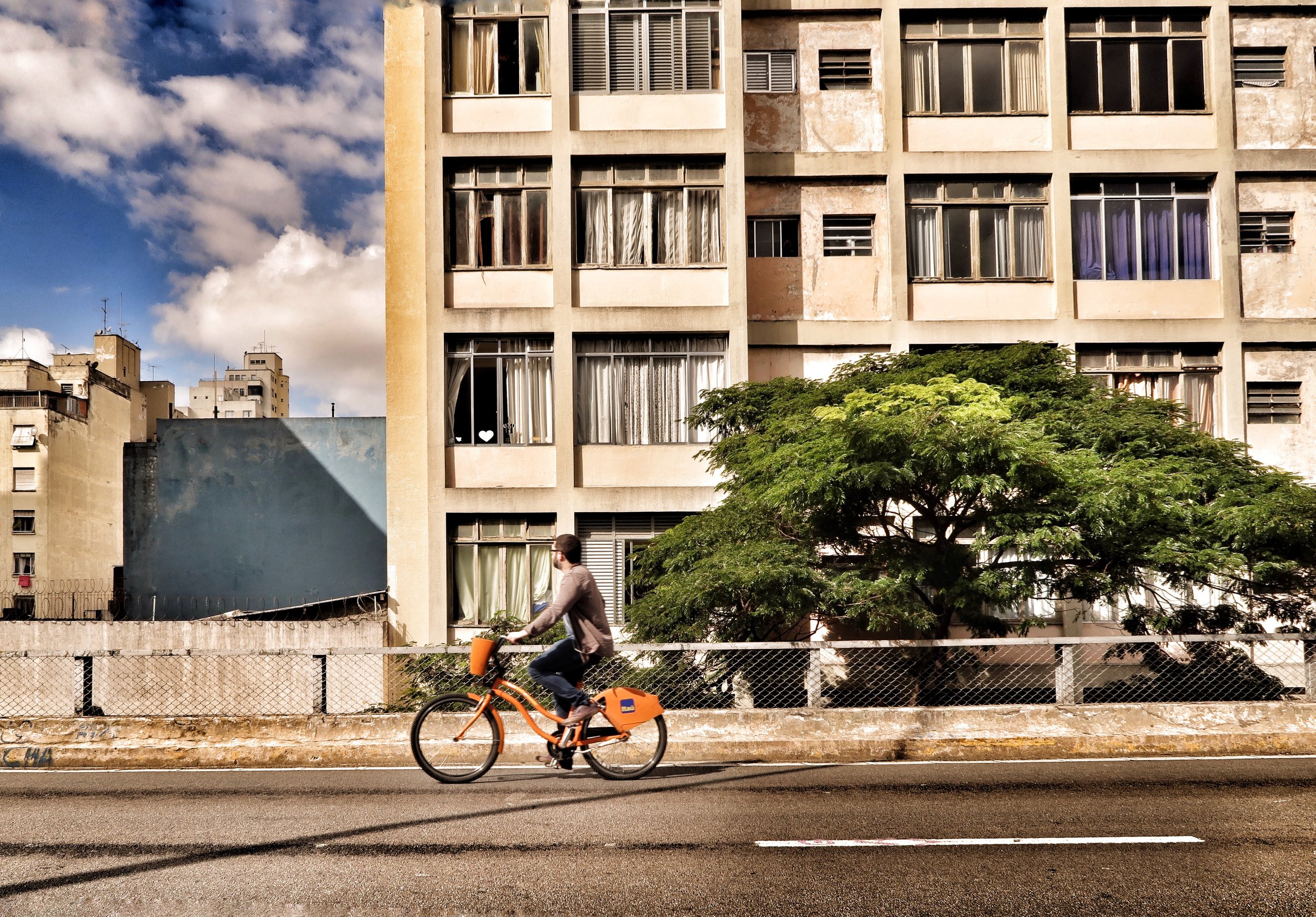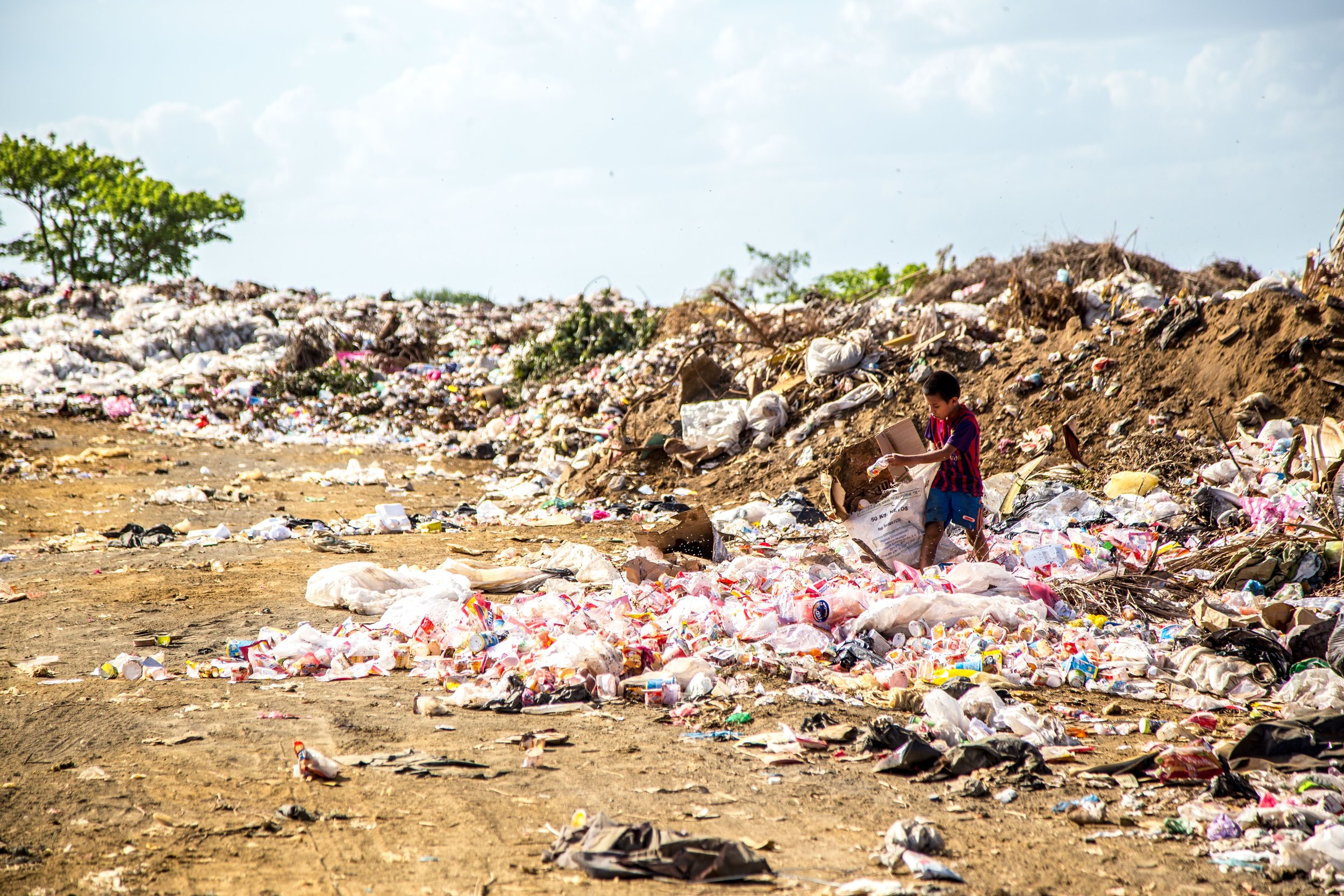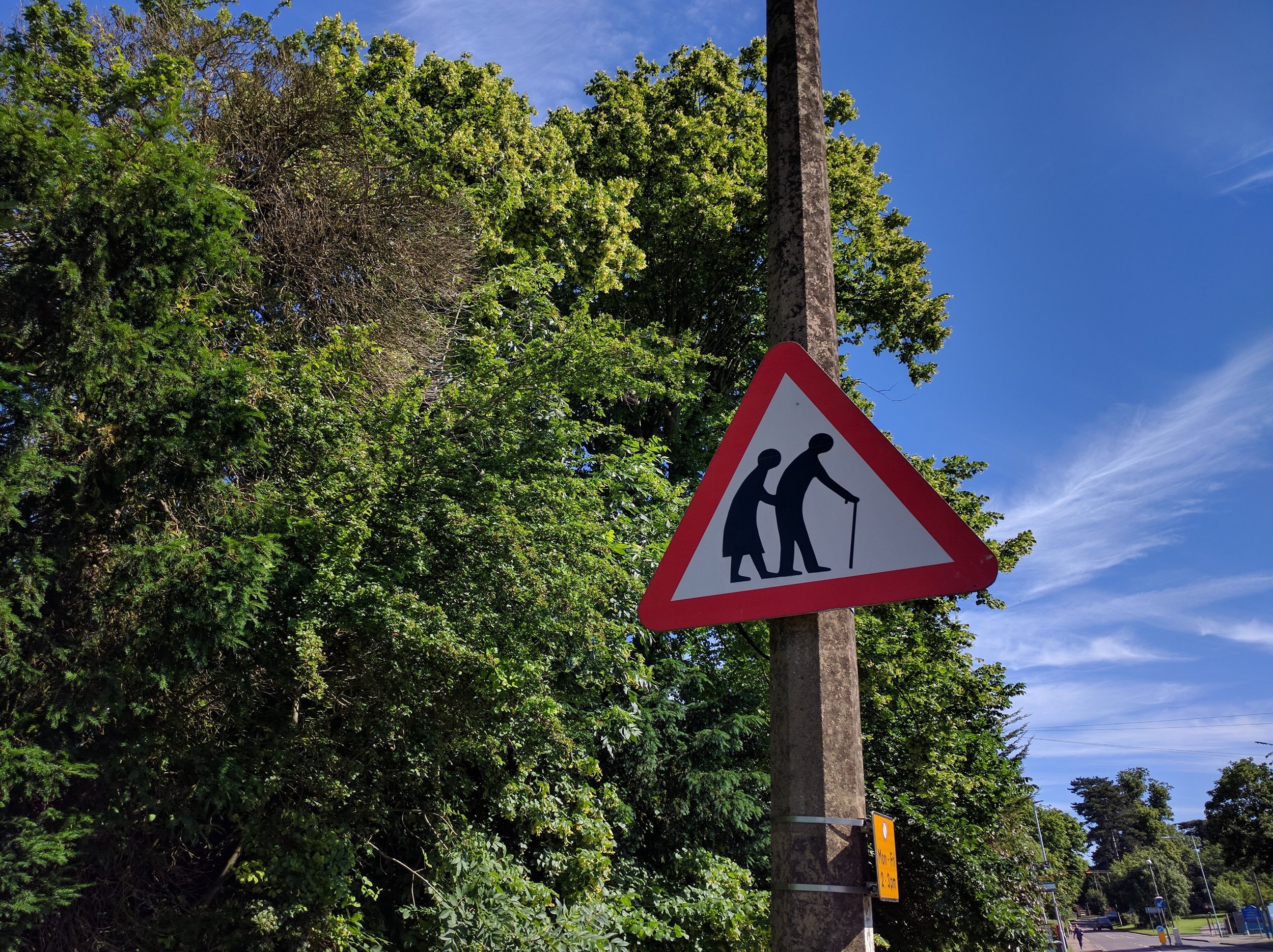
DEVELOPMENT AS OUR CORE
Our range of projects and consultancies covers multiple thematic aspects such as resilience to climate change, sustainability, strengthening of civil society organizations, mobility, research, among others. This is possible because our core speciality is development.
According to the World Summit for Social Development (United Nations, 1995), social development is "inseparable from the cultural, ecological, economic, political and spiritual context of the place where it takes place." Likewise, "it is clearly linked to the development of peace, freedom, stability and security ... and the promotion of this type of development requires an approach of values, objectives and priorities aimed at the well-being of all people."
This means that we can get involved in any project, program or policy that seeks to integrate theories of justice and social impact, inclusion, participatory processes, well-being, capacity building, etc. Also, the consultants who make up the SIA network of strategic allies have specialized practical experience that facilitates linking development with financial, commercial, political, civil society organization or research schemes.
Feasibility Study: Capacity Building in Irregular Settlements for Sustainable, Equitable, and Climate-Resilient Water Management in Chiapas | Habitat for Humanity Mexico, BMZ-Germany
(Oct 25 - present) Feasibility evaluation under CAD/OECD criteria to optimize the design of the project, strengthen community water governance and promote the participation of women in territorial water management.
Facilitation of the Strategic Planning process of Fundación Estafeta
(Oct 25 - present) Design and facilitation of the five-year participatory strategic planning process for the Estafeta Foundation, integrating multi-stakeholder workshops and analysis of institutional priorities to guide its impact and sustainability model.
Communication Strategy and knowledge management for the Aguas Firmes Scale Up project | GIZ, Coca Cola México and Grupo Modelo
(Apr 25 - present) Led the design and implementation of a knowledge-driven communication strategy to amplify the visibility, relevance, and uptake of territorial and media-based results within the Aguas Firmes Scale Up project. The strategy positioned communication as a tool for engagement, reflection, and transformation, encouraging different audiences (including public, private, and community actors) to connect with the project's goals and apply its resources. Supported multistakeholder processes with Grupo Modelo and Coca-Cola México using PMEAL, Outcome Mapping, and Kumu to identify and communicate evidence of change.
Multicultural and Intercultural Inclusion Protocol | ECLAC – United Nations
(Apr 25 - present) Development of a protocol to incorporate a multicultural and intercultural approach into the 2050 Sustainable Development Strategic Plan of Quintana Roo. Included theoretical framework, guiding questions for policy design, case studies, monitoring indicators, and recommendations for implementation.
Human Impact Evaluation of Hurricanes Otis & John | UNICEF Mexico
(Mar - Jun 25) Coordination of an evaluation based on the United Nations Guidelines for Assessing the Human Impact of Disasters in Acapulco and Coyuca de Benítez, Guerrero, analyzing impacts on living conditions, health, education, livelihoods, food security, gender equality, social inclusion, and the protection of children and adolescents. Methodological design, fieldwork, and development of recommendations for recovery and public policy.
Strategic Planning Process for "Club de Niñas y Niños" de México, A.C.
(Jan - Mar 25) Design of a five-year strategic planning to guide the operation of the organization, aligning its activities with the national vision and the particularities of the context of each of the Girls' Clubs in the country.
Evaluation of the Improving Sustainable Livelihoods for Women Smallholder Farmers in Southeastern Mexico | Pro Mujer
(Dec 24 - Jun 25) Evaluation to measure the strengthening of entrepreneurial skills and leadership in women coffee and cocoa producers, promoting their participation in decision-making. Development of instruments for evaluation and analysis of actions with a gender-environment perspective for the sustainability of the participating Agricultural Producer Organizations in Oaxaca and Chiapas.
Systematization of the progress of the Strategic Plan of Actions for the Care of Children and Adolescents in the Context of Mobility (PEAANNAM) and State Roadmap – UNICEF Mexico
(November 2024 - February 2025) Consolidate a document that systematizes the experience and identifies the changes generated in at least three States of the Republic that have participated in the Second Component of the National PEAANAM since 2021.
Project Design and Management to Accompany Migrant Shelter Projects - CRS
(November 2024 - February 2025) Accompany and strengthen 15 migrant shelters in Mexico to design a project proposal to be financed by donors, emphasizing the sustainability component
Labor market study for socio-labor insertion to accompany projects with migrant shelters – CRS
(November 2024 - February 2025) The consultancy will be used to analyze the employability needs of migrants in 15 shelters to provide socio-labor referencing to migrants through an instrument to be developed and implemented and generate viable solutions according to the context and resources of the shelter.
Holistic assessment of learning and development outcomes for children on the move: HALDO ON THE MOVE - Save the Children / UNHCR
(November 2024 - December 2024) Consultancy for developing reference documents for international organizations, non-governmental organizations, and public servants that provide information on the context and educational inclusion needs of children and adolescents in forced displacement in Mexico between 5 and 18 years of age. These documents are based on the results obtained from the applied methodology and the HALDO on the Move test and on analyzing relevant secondary sources from a quantitative and qualitative perspective.
The Electoral Institute of Mexico City: Perspective of its Public Servants - IMCO
(October 2024) Design and implementation of a workshop to promote a space for reflection for public servants to evaluate the strengths, weaknesses, opportunities and risks of their daily work and how it contributes to the Mexican electoral system, obtain qualitative information on the functioning of the Electoral Institute of Mexico City and analyze the dynamics of coordination of the Electoral Institute of Mexico City and the National Electoral Institute.
Process of Review and Adaptation of the Work Plan of the Subgroup for the Protection of Children in Human Mobility 2024 -UNICEF/OIM/ACNUR
(Ago 2024) A process dedicated to generating knowledge to review and update the Work Plan of the Subgroup for the Protection of Children in Human Mobility 2024. The process includes identifying progress so far, generating goals for 2024-2025 and proposing recommendations for a transition support strategy. It also includes generating a periodic monitoring system, creating knowledge for dissemination, and systematizing the project.
Qualitative evaluation for USAID CATALYZE Edufinance interventions in Sub-Saharan Africa
(May - present) Consultancy to lead the design of qualitative data collection tools for the performance evaluation of USAID CATALYZE Edufinance interventions in Sub-Saharan Africa (Tanzania, Rwanda, South Africa and Zambia). The CATALYZE EduFinance mechanism aims to improve disadvantaged children and youth's educational and learning outcomes by mobilising private capital for the non-state education sector.
Social Cohesion Index
(May 2024 - present) Consultancy aimed to design a social cohesion measurement tool for a non-permissive environment in Latin America. The tool will be adapted into a Multidimensional Index to create targeted recommendations to improve the local social cohesion among the youth
Participatory Strategic Planning for the Project for the Conservation of Biodiversity in the Sierra Madre Oriental and the Gulf of Mexico (Sierra y Mar) – Mexican Fund for the Conservation of Nature
(Apr 24 - present) Design a five-year strategic plan that guides the operation of the project aligned with the fulfillment of the biodiversity conservation objectives in the 14 NPAs and the ecological corridors of its intervention area.
Participatory evaluation for the series of webinars TELAR Mental Health, USAID RSA program
(March - April 2024) Social Impact (SI) has been asked by prime contractor FHI 360 and USAID/Mexico to conduct a survey (within TELAR Mental Health) focused on the mental health and well-being of CSOs. The consultancy will be under RSA’s TELAR Mental Health with Mexican civil society organizations (CSOs) to assist in designing, implementing, and analyzing the results of a comprehensive participatory evaluation survey that collects data from over 1,300 CSOs that have been a part of TELAR Mental Health.
Evaluation of the project "Community Emergency Response Teams in the Diocese of Acapulco, in the State of Guerrero."
(Feb - March 24) Participatory evaluation of the capacity-building process for emergency response in Espinalillo, Playa del Carrizal, San Nicolás, Playa Azul, Cimientos and El Cayaco in the municipality of Coyuca de Benítez.
Evaluation of the Kaanbal Suut Programme and development of a diagnostic assessment tool by 2024
(Feb - May 24) Consultancy to evaluate the performance, results and impact of the Kaanbal Suut Program (strengthening CSOs working for the conservation of the environment in the Yucatan Peninsula) in its three years of operation, make recommendations for the design of Kaanbal Suut for the next three years including the design of a diagnostic evaluation tool to be implemented from 2024 to all groups participating in the Program.
ILAB Solidarity Center Performance Evaluations - DevTech
(Oct 2023 - present) Local evaluator for DevTech’s series of high-quality and cost-effective performance evaluations of three technical assistance projects funded by the Bureau’s Office of Trade and Labor Affairs (OTLA) and implemented by a common grantee, the Solidarity Center and support of USDOL in carrying out associated learning and communication and dissemination activities to encourage the application of the evaluation results.
Generate evidence of change, visibility and dissemination of results under a differentiated dissemination strategy of the Aguas Firmes - GIZ.
(Oct 2023 - May 2024) Consultancy to generate evidence of change in relation to the project's objective to achieve an environmentally friendly use of groundwater. This is achieved based on five pillars from May 2021 to April 2024: (1) sustainable agriculture practices, (2) financial inclusion, (3) aquifer assessment and monitoring, (4) water management governance, and (5) nature-based solutions and green infrastructure. The project was developed in Apan, Hidalgo, Calera, and Zacatecas.
Consultancy on designing an institutional water monitoring program focused on conserving aquatic ecosystems with citizen participation - GWW.
(Sep 23 - Feb 24) Global Water Watch México AC, financed by the Foundation Institutional Insertion of participatory monitoring of water and aquatic biodiversity in CONAGUA to improve water management and epicontinental aquatic ecosystems in Mexico, aims to design inter-institutional spaces that allow exploring procedures with actors working on water issues, to develop a work strategy to insert participatory water monitoring in administrative schemes that promote management of water such as the creation of a Citizen Water Management Committee (CoGeCiA)
Strengthening Emergency Management Capacities of Migrant Shelters in Mexico and Guatemala - Phase II - CRS
(Sep - Dec 2023) The project aims to strengthen the technical capacities of staff of migrant shelters and houses and to strengthen coordination mechanisms within partner networks and between partners in the two countries for an effective exchange of information on migration flows, trends, and challenges. The consultancy focuses on conducting a final evaluation to measure the effects and impacts achieved in the target population served by the project.
Institutional Performance Index Workshop
(Ago—Sept 2023) Accompaniment in the design and analysis of a practical workshop to strengthen the Institutional Performance Index developed by IMCO
The technical operation of the Program for the Strengthening of Civil Society Organizations and Grassroots Groups in the Yucatan Peninsula that implement or are in the process of adopting nature-based solutions" – Sureste Sostenible, funded by The Nature Conservancy
(Jun-nov 2023) Assist in coordinating and operating the 20 CSO and Grassroots Strengthening Program of the Yucatan Peninsula to ensure the fulfillment of the project objectives.
Qualitative evidence on the effectiveness of the "New Men, Free Men" methodology implemented in LACRO - CRS
(May-sept 2023) Collect qualitative evidence on the effectiveness of the "New Men, Free Men" methodology implemented in the fiscal year 2022 in various contexts and different modalities in Latin America and the Caribbean.
Agriculture, Soil, and Water (ASA) Meta-analysis ‘Young people to promote the decade of restoration; Regional Report for Soil Restoration in Central America' – CRS
(Jun - july 2023) Analyze the different reports to identify common themes or trends among the different countries, as well as those different or particular elements to generate a report integrating quantitative data, such as survey data tables, focus group reports, and narrative reports of the focus groups, which allow CRS to make strategic decisions for the planning of the program to be implemented with the young people of Mexico, Guatemala, El Salvador, and Honduras.
Elaboración de un Tablero interactivo para visualizar estadísticas de Migración en México OIM
(Jun - oct 2023) Provide technical support to create a cohesive multistakeholder process for a consultancy aimed to create a Data Analysis Dashboard that uses mobility and migration statistics generated by the Government of Mexico through UPMRIP to provide detailed and visually understandable information on relevant demographic characteristics. This will support decision-makers and the general public by facilitating interpretation and access to data.
Study of Chihuahua Prosecution Office’s Impact
(Jun-aug 2023) Provide technical support to create a multistakeholder participatory research process to understand the correlation of budget availability and allocation and shifts in major crime totals for the last ten years.
Mexico Automotive Sector Evaluation | US Department of Labor, Bureau for International Affairs
(Apr 2023 - jul 2024) In collaboration with DevTech, provide expertise to design and implement participatory monitoring and evaluation strategies to evaluate the initiative’s results in the automotive sector, identify best practices and lessons learned, and make recommendations for the program’s adaptation.
Consultancy for the co-design and co-facilitation of the Kaanbal Suut Program for capacity building and leadership of civil society organizations in the Yucatan Peninsula
(Feb 2023 - present) Provide support to Sureste Sostenible A.C. in the co-design and co-facilitation of the Kaanbal Suut 2023 program. The program aims to train a new group of 20 organizations in Strategic Planning, Talent Management, Financial Sustainability, Communication, and other relevant topics and foster collaborations and synergies among the organizations of the Kaanbal Suut community. Also, monitor the process and measure the results of the strengthening process.
Strengthening of the project "Streets without violence and free of addictions" funded by FICOSEC
(Dec 2022 - Aug 2023) The consultancy is designed to strengthen the project "Streets without violence and free of addictions," which includes: the evaluation of the project, the adequacy of an internal monitoring and evaluation process that considers the OECD indicators and learning processes, the design of a communication plan, as well as manuals and operational flowcharts that include the facilitation of workshops. The project seeks to prevent and address children and adolescents (NNA) substance use through a multicultural approach aimed at different contexts (families, schools, peers, and community) in Chihuahua.
Evaluation of the project "Project National, Diocesan and Parish Network for Risk Management in the dioceses of Cuernavaca, Tehuantepec, and Tuxtla Gutiérrez."
(Dec 2022 - febrero 2023) The final evaluation seeks to analyze the efficiency and effectiveness of the project to systematize the results achieved, the facilitating factors and obstacles of the experiences, and with it, build recommendations for future projects. The objective of the project is to contribute to the institutional strengthening and capacities of Cáritas Mexicana in emergency response and to improve the coordination, implementation, accompaniment, and communication capacities of the diocesan teams of the network to promote parish risk management processes in the dioceses of Tehuantepec, Tuxtla Gutiérrez, and Cuernavaca.
A quantitative and qualitative study on the contribution of Venezuelan refugees and migrants to cultural integration in the host territories of Lima, Arequipa, Trujillo, Chiclayo, and Piura in Peru for ECLAC & UNESCO
(Dec 2022 - July 2023) Using SenseMaker, the project seeks to develop a study that allows obtaining and communicating quantitative and qualitative results based on the programs developed by the UNESCO Peru office in Lima, Arequipa, Trujillo, Chiclayo, and Piura. The objective is to determine the contribution of refugee and migrant cultural agents from Venezuela to socio-cultural integration in host cities and communities and build theory around the concepts of cultural agents and cultural resilience.
PMEAL Capacity Building - CENPRO
(Nov 2022) Four theoretical-practical modules were taught for two CSOs in Chihuahua related to Participatory Monitoring and Evaluation for Accountability and Learning (PMEAL), specifically about: 1. Introduction to participatory processes and spaces, 2. Outcome Mapping, 3. Outcome Harvesting, 4. Build your workshop
Agriculture, Soil & Water (ASA) – CRS
(Nov 2022 - abril 2023) The objective of the study is to identify subjective elements (perceptions, meanings, and valuations) and objective conditions (opportunities in the territories, land tenure, among others) that young men and women report as facilitators or dissuasive to engage in agriculture and achieve sustainable change at scale in the provinces of Zacapa and Chiquimula in Guatemala.
Building inclusive risk management: triggering changes towards community resilience in Acapulco - GRRIPP (Gender Responsive Resilience & Intersectionality in Policy & Practice)
(December 2022 - May 2023) Funded by UKRI, the project seeks to consolidate community risk management processes that consider social inequalities and inequities for creating urban resilience in two neighborhoods that are part of Acapulco, the State of Guerrero, Mexico.
Construction of Future Vision 2050 of the Secretary of Economic Development of the State of Mexico
(November 2022) A multi-stakeholder collective intelligence table was designed and implemented based on the Outcome Mapping methodology to contribute qualitatively to the Future Vision 2050 study for the Secretary of Economic Development of the State of Mexico.
Social Impact and Management Strategy for the recovery of the right of way of the Línea FA railway
(September 2022 - January 2023) Diagnosis of the social situation of the ra’ ‘right of way’ to design a strategy proposal for maximizing positive social impact and creating a people-centred management scheme for restitutions and relocations.
Implementation of the Strategic Alliances Solution for RSA - USAID
(August 2022 - November 2022) Design of the Strategic Alliances Solution for Civil Society Organizations involved in the RSA project, implemented by FHI and Social Impact and funded by USAID
Capacity building within the "Social Innovation Center for Organizations" – FICOSEC
(Jul 2022 - March 2023) Construction of capacity-building program in participatory methods for civil society organizations that collaborate with FICOSEC to construct inclusive public policy for development. Project financed by USAID.
Development of the Monitoring Manual for the Global Sexual and Gender-Based Violence Toolbox – Washington University St. Louis
(March - Aug 2022) Development and adaptation of Module 4 of the Global Sexual and Gender-Based Violence Toolkit for people on the move, refugees, displaced persons, or asylum seekers.
Construction of the Sustainable Development vision for the Metropolitan Area of San Luis Potosí – SLP Municipal Government
(Jun - Sep 2022) Design and implement study validation workshops to construct a comprehensive vision of sustainable development of the metropolitan area of San Luis Potosí.
Development of year two report of the project "Diversxs: diversity under attack" – Amnesty International
(Jun - Aug 2022) Diversxs is an Amnesty International project that promotes the empowerment and mobilization of LGBTIQ+ youth under 30 in Latin America and the Caribbean (Venezuela, Peru, Paraguay, and Puerto Rico). The consultancy contemplates collecting information and drafting the report for year two of implementation.
Implementation of the Smart Urban Resilience Project Roadmap with CSOs – Newcastle University
(Jun - Aug 2022) Design and implement a mentoring program to build capacities for implementing the Roadmap of the research project and promote interlocal dialogue and learning with civil society organizations.
Contributions of International Migration | ECLAC
(May - Sep 2022) Consultancy to coordinate, organize and implement the national workshops of dissemination and socialization of the study "Taking advantage of the contribution of intraregional migration to socioeconomic development in the countries of Latin America and the Caribbean." Also, support national training and technical assistance activities within the framework of the project.
Facilitation of the project design process "Social Transformation with a Focus on Peacebuilding" | Cáritas Mexicana & Cáritas Alemana
(May 2022) Facilitation of the design process of the second part of the project to be implemented by the Dimension of Faith and Social Commitment of the CEPS in 15 dioceses in Mexico.
Year 1 evaluation of the project "Prevention of violence and protection of young people in Guatemala, Honduras, and Mexico" Dimension of Faith and Social Commitment Caritas Mexicana
(January-March 2022) The objective is to review successes, learnings, areas for improvement and elements to be redesigned to visualize the fulfillment of the proposed objectives, from the appreciation and assessment of different actors involved in the implementation of the project: coordinating team, responsible agents, participants, and beneficiaries.
External evaluation of the SUMA programme | METLIFE Foundation
(Jan - Apr 2022) Design and implementation of the external evaluation of the SUMA program, an initiative of the MetLife Foundation and New Ventures aimed at improving the financial health of low- and middle-income people in Mexico through behavioral sciences. The analysis of its three phases made it possible to identify good practices, key learnings and effective adoption mechanisms. The interventions designed by the participating enterprises directly contributed to improving the financial well-being of their communities.
Evaluation and design PMEAL for PROFIL | GIZ/UNHCR
(Dec 2021 – Dec 2022) The Monitoring and Evaluation System is based on results as a project management tool to identify the scope, positive and negative impacts, specific contexts of conflict, lessons learned, and progress in the integration of refugees, asylum seekers, displaced persons, other people on the move and members of host communities in a similar situation of vulnerability in Mexico. The above is so that both project partners achieve an efficient and effective implementation of it.
Knowledge management for the ConJusticia | DAI & USAID
(Oct 2021 – Oct 2022) The Programme for the Strengthening of State Criminal Justice Institutions (ConJusticia) consolidates and sustains recent reforms of the justice system by supporting state-level attorneys general's offices and courts of justice, emphasizing collaboration and lasting partnerships between these entities and other justice sector and local actors. These mutually supportive partnerships will enhance Mexico's ability to prosecute high-priority crimes, including severe and high-impact crimes, and reduce impunity.
Collaborative, contextual analysis for humanitarian disaster response in Dhaka| Deutsche Rote Kreuz
(Sep – Dec 2021) Consultancy to provide technical guidance and support to the BDRCS/GRC project team in completing the guidance and information of a future project by facilitating understanding of how concepts that are applied in any of the projects in some regions of Dhaka can be translated into other urban areas or secondary cities in cooperation between BDRCS and the local government. The objective of the consultancy is to develop recommendations for the analysis of the context relevant to humanitarian assistance in an urban environment that is applicable beyond the context under review.
PMEAL evaluation of South Central | FICOSEC
(Sep- Dec 2021) Evaluation of the projects: "Reconstructing me: Model of focused attention for generators of family violence in conflict with the law" by Jaguares Jóvenes de Bien A.C & "Transforming people and violent environments (Young people creating spaces of peace)" of the Youth Advisory and Promotion Center, A.C. (CASAPJ) in the state of Chihuahua. FICOSEC funded the evaluation.
PMEAL final evaluation of the project “Strengthening 35 Migrant Shelters in the Guatemala/Mexico corridor” | Catholic Relief Services
(Sep - Nov 2021) PMEAL final evaluation of the project of Strengthening of Shelters for migrants, refugees, or asylum seekers. The consultancy focuses on 35 shelters distributed in several states of Mexico and Guatemala. Project for Catholic Relief Services (CRS)
Developing an evidence-based, adaptable practice toolkit to improve approaches to GBV disclosure in humanitarian settings.
(Apr 2021 - Feb 2022) Project for the Center for Human Rights, Gender and Migration of Washington University, St. Louis. The project is designed to evaluate the impact of a toolkit designed to identify and provide support to migrants who have been victims of gender-based violence. The pilot will be tested in Mexico with local shelters and in collaboration with UNHCR. Likewise, the PMEAL strategy will be designed to evaluate its use in Kenya, Greece and subsequently at a global scale. Project funded by the US State Department.
PMEAL strategy for the Amnesty International project "Diversxs: diversity under attack"
(Jun - Sept 2021) Diversxs is an Amnesty International project that promotes the empowerment and mobilization of young LGBTIQ + people under 30 years of age in Latin America and the Caribbean.
The consultancy aims to design and implement a monitoring and evaluation strategy to measure both the progress and the impact of the Diversxs project in Venezuela, Peru, Paraguay and Puerto Rico. The consultancy includes the construction of indicators, the development of collection tools and instruments, as well as the analysis and systematization of information with key groups and actors.
Final evaluation of the NOTIMIA project
(April 2021 - Mayo 2021) Consultancy to evaluate the results of the NOTIMIA project. NOTIMIA is an indigenous and Afro-descendant women news agency in Mexico and Latin America. The evaluation was carried out with PMEAL tools to identify the great achievements of the project and systematize the lessons learned to generate knowledge that is useful for the continuity of the project.
Final evaluation of the project "Disaster Risk Reduction" for Catholic Relief Services
(March 2021- Mayo 2021) Consultancy to evaluate the results and impacts of the DRR project implemented by Catholic Relief Services and Cáritas Mexicanas in nine dioceses in Mexico as an effort focused on prevention after the September 2017 earthquakes. The evaluation was designed with based on PMEAL tools and focused on the evaluation of the coordination process, the achievements within the framework of the project objectives and activities, and the lessons learned for future similar projects.
Design of a Monitoring and Evaluation Strategy (PMEAL) for CADENA A.C.
(February 2021 - July 2021) Design of a series of indicators and reports for the Participatory Monitoring and Evaluation scheme for accountability and learning (PMEAL) of CADENA, A.C. The strategy will allow them to effectively communicate the Brigadas project results and impacts; they will also be able to make informed decisions to improve their project and specific activities. The work will be done taking into consideration a gender perspective, as well as the inclusion of vulnerable groups and people with disabilities.
Intermediate evaluation of the project "Social Transformation with a Focus on Peacebuilding"- Catholic Relief Services (CRS)
(January- March 2021) Consultancy for the "Faith and Social Commitment" dimension of CEPs-Caritas Mexicana, Caritas Germany, Secours Catholique Caritas France, and Catholic Relief Services to carry out a mid-term evaluation of the implementation of the project in 13 dioceses of the country. The evaluation had the aim to review successes, identify good practices and areas of improvement that can be improved to achieve the proposed objectives. The participatory process were based on the Outcome Harvesting methodology and focused on the experience of all the different kind of stakeholders involved in the implementation of the project.
Capacity Development Consulting for Agenda Cero
(November 2020 - February 2021) Consulting for the strengthening of capacities of Civil Society Organizations that work every day on the most pressing issues of our country. The capacity building process co-produces with the people who work within the organizations that are part of the program to define the areas where more attention is required. By improving their capacities in relation to topics such as Strategic Planning, Governance, Strategic Alliances, Monitoring and Evaluation, Resource Mobilization, among others, it is sought that CSOs can achieve more sustainable and impactful results, as well as achieve a greater infrastructure capable to handle higher volume financing and scale your operation to the next level.
Workshop “Plan, build and measure change” for the House of Ayni Fellows Community.
(November 2020) Workshop designed for organizations to obtain practical methodologies and tools to plan and build participatory models of participatory monitoring and evaluation for learning (PMEAL). The allies that participate in the workshop are organizations that work on violence prevention and Human Rights issues, issues in which it is imperative to integrate the target populations into the Monitoring and Evaluation process.
Consultancy to design the Monitoring and Evaluation for Learning strategy of the Amnesty International project “Improving police supervision mechanisms in Latin America and the Caribbean in the context of Covid-19”
(October 2020 - September 2021) Monitoring and Evaluation Consultancy in relation to the six Latin American dialogues on the improvement of police supervision mechanisms in Latin America and the Caribbean in the context of Covid-19 and the implementation of pilot projects in Trinidad and Tobago, Salvador and Brazil from the program "Police under the magnifying glass". The findings of the consultancy will be used in a communication campaign based on storytelling, as well as for the improvement of practices in the project based on the identified findings.
Smart Urban Resilience: facilitating citizen action in disaster risk reduction and emergency response
(October 2020 - March 2022) Consultancy for the systematization of the findings of the research project financed by the Newton Fund and executed by the CIDE, CONACyT, Durham University and Newcastle University in Coyuca de Benítez, Puebla and Querétaro. The systematization of learning will be used to generate an effective communication strategy, through which the dissemination of key documents (roadmaps) for local governments is carried out, and with it, promote the use of technology to reduce Disaster risks and emergency response in small and medium-sized cities in Mexico.
Consulting Institutional Strengthening of FONADIN in Mexico towards a Sustainable Infrastructure
(August 2020 - July 2021) Consultancy financed by the Inter-American Development Bank (IDB) for the National Infrastructure Fund (FONADIN) of Mexico in collaboration with SINFRANOVA for the integration of the IDB Sustainability Framework to the financing schemes of infrastructure projects of FONADIN. Specific contribution in the generation of development guidelines and social impact, as well as its monitoring and evaluation indicators for mega infrastructure projects in Mexico.
Consulting: case study investigation of the GAM methodology for CRS Peacebuilding Projects
(June 2020 - September 2020). Consultancy for Catholic Relief Services (CRS) focused on mapping the results of the Support Groups of Women Affected by Violence (GAM) in the states of Guerrero, Chiapas, Michoacán and Veracruz (México) in order to build a case study that allows replicate and scale the model in more municipalities in the country.
Citizen Participation Strategy for the preparation of the Comprehensive Mobility Plan of the CDMX
(Septiembre 2019 - Junio 2020). The team of seven specialized consultants accompanies the Mobility Secretariat of Mexico City in the generation of citizen participation spaces for the determination of Mexico City's Comprehensive Mobility Plan (Spanish acronym "PIM") 2020-2024. This process includes the validation of current concerns for diverse population groups, as well as their prioritization and deep understanding together with relevant actors in the subject. The process comprises workshops, interviews, surveys and virtual processes that allow generating space and giving voice to large groups of the population, which gives them agency to participate in the shaping of their own city by generating a public policy aimed at guaranteeing a mobility system for everyone in the city.
Consulting- USAID Civil Society Activity
(February 2019 - August 2020). Consulting for the Civil Society Activity (CSA) of the United States Government Development Agency (USAID) through Social Impact. Specialization in learning recovery and capacity building for the structuring of manuals (Solution Packages) for strengthening Civil Society organizations on issues related to Governance, Strategic Alliances, Strategic Planning, Knowledge Management, Mobilization and Resource Generation, Human Resources and Compliance to the Non-US Pre-Award Survey (NUPAS).
Valle Te Transporta Project
(2018- current). The consulting team designed and performed a participatory socialization process to define the Mobility Strategy for the city of Valle de Bravo, Mexico, that reflects the concerns and needs of the community. The Communications Secretariat of the State of Mexico Government is funding the project and is working in direct connection with the Municipality of Valle de Bravo. The project is currently in the implementation stage, through actions that need the coordination of different levels of government (local, state and federal). Technical studies are being done to ensure technical viability. Also, new participatory spaces are helping deepen the understanding of specific concerns and giving the authorities guidelines on how to approach such issues. The actions are aligned to the 2030 Agenda (SDG 11) and the New Urban Agenda.
Design of public policy strategy for urban development from the perspective of cities resilient to climate change
(Feb 2017 - Feb 2019) The purpose of the project was to promote participatory and inclusive urban governance patterns that facilitate the development of climate resilience in the Urban-Lagunar System of Coyuca de Benitez (SULC) in the state of Guerrero, Mexico. Based on this, the general objective of the project was to develop a gender-sensitive climate change adaptation plan in collaboration with the public sector, civil society and academia. The specific objectives were:
Analyze climate risks and adaptation strategies of the Coyuca urban-lagoon system through participatory processes to identify vulnerabilities and relevant existing strategies.
Analyze the governance patterns of urban policies to identify opportunities and challenges to develop viable adaptation strategies.
Co-produce gender-sensitive adaptation strategies and incorporate them into public action in the municipality of Coyuca.
The project was part of the CDKN Climate Resilient Cities Initiative in Latin America, managed by Fundación Futuro Latinoamericano (FFLA) in Ecuador, and funded by IDRC.
Social impact research on a sustainable mobility scheme
(2015, Havana, Cuba) The Director of SIA carried out a study focused on enhancing the positive implications of the mobility scheme through citizen participation and the inclusion of visions of social development in its operational design.
Impact and social development of a road improvement project in two irregular neighbourhoods
(2015, Kisumu, Kenya) SIA management staff conducted a study focused on identifying positive and negative impacts of the project, prioritizing possible actions with the local community and government, generating indicators and monitoring and evaluation strategy.
Social Impact of Euston Station Expansion
(2014, London, England) SIA management staff carried out a study focused on citizen participation and accountability from different levels of government due to the social impact generated by the train station expansion project.





